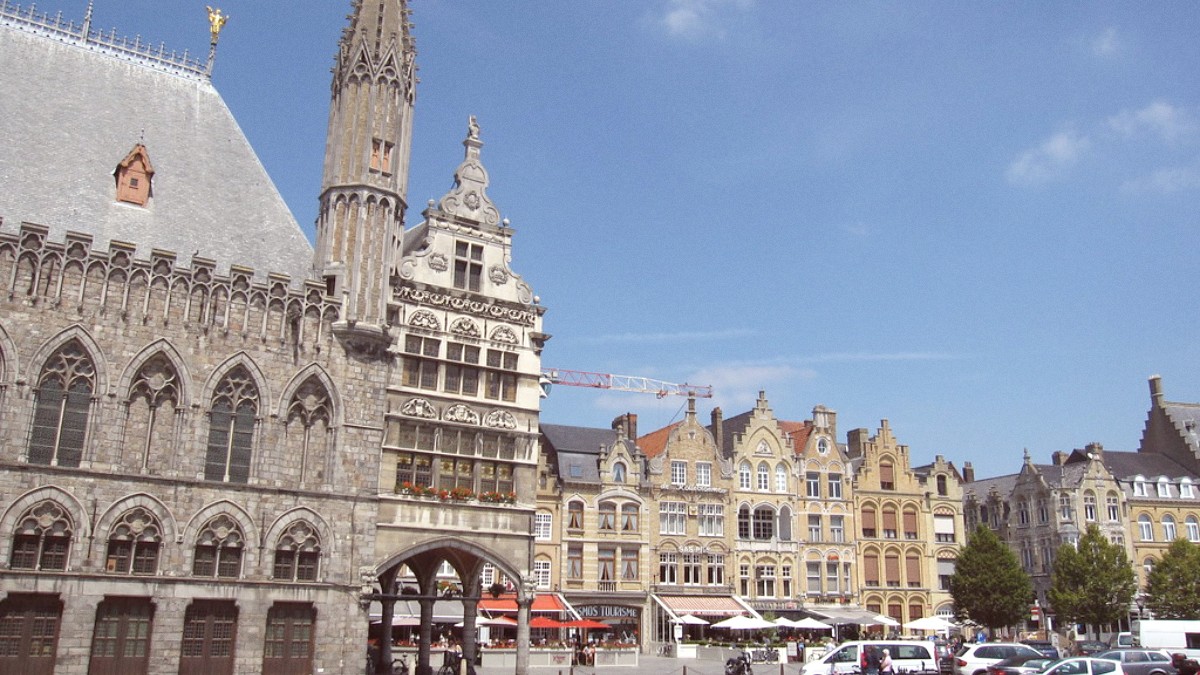
Flanders, Belgium
This guide outlines everything for your journey, from travel preparations to finding the perfect local beer. Prepare for an experience that moves, informs, and inspires.
Ypres, or Ieper in Dutch, sits in the province of West Flanders, Belgium, nestled in the heart of the Westhoek region. This area of Belgium is known for its flat, low-lying terrain, characterized by rich agricultural fields and a network of small rivers and canals. The city lies approximately 120 kilometers (75 miles) west of Brussels, Belgium's capital, and about 40 kilometers (25 miles) from the French border. This proximity to France allows easy cross-border travel for those extending their journey. The landscape around Ypres holds deep historical significance; it formed the infamous "Ypres Salient" during World War I. Today, the gentle hills and open fields, while peaceful, still bear the subtle scars of that conflict. Its relatively central location in Western Europe makes Ypres an accessible destination, whether by air, train, or car. The flat terrain makes the region ideal for cycling, a popular way to explore numerous historical sites scattered throughout the countryside.
Ypres is a place in history as a phoenix from the ashes. Once a prosperous medieval cloth town, its wealth symbolized by the magnificent Cloth Hall, the city became a central point of the Western Front during World War I. From 1914 to 1918, the Ypres Salient witnessed some of the most intense and sustained fighting of the war. Four major battles devastated the area, leaving the city and its surroundings in utter ruins. Nearly every building, including the Cloth Hall and St. Martin's Cathedral, lay destroyed. The landscape itself transformed beyond recognition, scarred by trenches, shell holes, and mines.
A symbol of medieval prosperity, meticulously rebuilt after WWI.
A profound tribute to Commonwealth soldiers missing from the Salient.
Located in the Cloth Hall, it recounts WWI's devastating impact.
The largest Commonwealth War Graves Commission cemetery worldwide.
A daily tribute at Menin Gate since 1928, occurring almost without interruption.
Ypres embodies a living history lesson, reflecting immense sacrifices and promoting a global message of peace.
Menin Gate Memorial, Cloth Hall and Belfry, In Flanders Fields Museum, numerous WWI cemeteries and battlefields (e.g., Tyne Cot).
Savor traditional Flemish dishes like Moules-Frites (mussels and fries), Carbonnade Flamande (beef stew), and a vast array of Belgian beers. Do not forget Belgian chocolate and waffles.
Ypres promises a journey of contemplation and discovery, offering insights into European history and modern Belgian life.
Prepare for a trip that balances poignant remembrance with comfortable travel.
Its unique blend of historical depth and contemporary Belgian life creates an experience unlike any other.
Ypres is a very safe city with low crime rates. Standard precautions for petty crime in crowded areas are advisable.
The city center is walkable. Buses connect to surrounding areas. Cycling is a popular and effective way to explore the battlefields.
Respect at war memorials holds significant importance. Tipping is appreciated but not required, as a service charge is often included.
Here are some useful details to keep in mind for your visit.